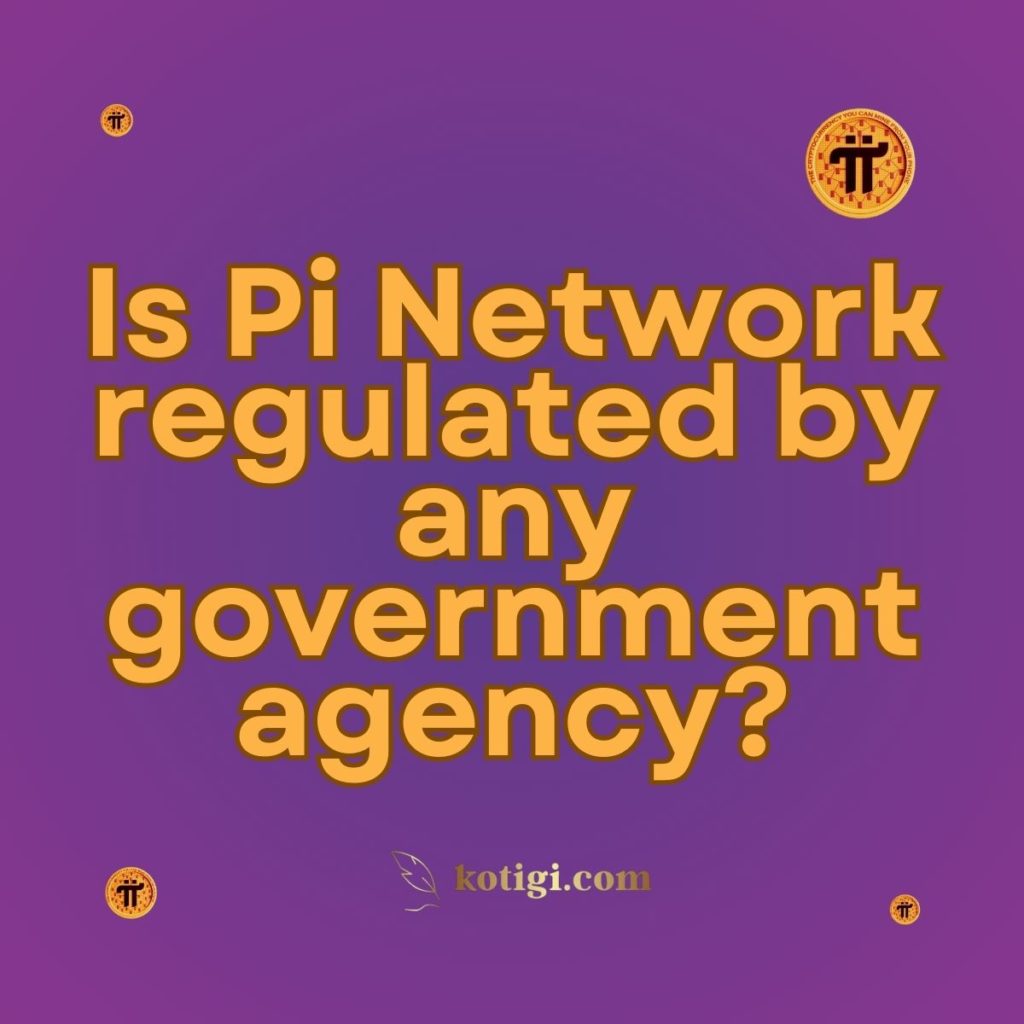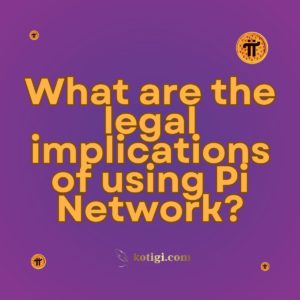
Is Pi Network regulated by any government agency?
Pi Network, like many other emerging cryptocurrencies, currently operates in a space that is not directly regulated by most government agencies. However, the regulatory environment surrounding cryptocurrencies is evolving, and Pi Network could potentially fall under various regulatory frameworks depending on its development and the jurisdictions in which it operates. Here’s a breakdown of the current regulatory landscape for Pi Network:
1. Lack of Direct Regulation
1.1. No Specific Government Oversight:
As of now, Pi Network is not directly regulated by any specific government agency. It operates as a decentralized cryptocurrency, which means that there is no central authority or government body that oversees its operations.
1.2. General Cryptocurrency Regulation:
While Pi Network itself is not regulated, it operates within the broader context of cryptocurrency regulations that exist in many countries. These regulations are typically designed to address issues like anti-money laundering (AML), combating the financing of terrorism (CFT), and consumer protection. However, these regulations usually target cryptocurrency exchanges and service providers rather than the cryptocurrencies themselves.
2. Potential for Future Regulation
2.1. Evolving Regulatory Environment:
The regulatory landscape for cryptocurrencies is continually changing. As Pi Network grows and potentially offers more financial services or becomes more widely used, it could attract the attention of regulators. This could lead to the introduction of specific regulations or requirements that Pi Network would need to comply with.
2.2. Possible Areas of Regulation:
If Pi Network expands its functionality to include trading, financial services, or other activities that fall under existing financial regulations, it could become subject to oversight by financial regulatory bodies. For example, in the United States, this could include agencies like the Securities and Exchange Commission (SEC) or the Financial Crimes Enforcement Network (FinCEN).
3. Indirect Regulation Through Service Providers
3.1. AML and KYC Requirements:
While Pi Network itself may not be regulated, any exchanges or financial institutions that deal with Pi coins could be subject to AML and KYC requirements. This means that users who wish to trade Pi coins on regulated exchanges may need to comply with these regulations, including identity verification and reporting requirements.
3.2. Impact on Users:
If Pi Network were to be listed on regulated exchanges or integrated with other financial services, users might encounter additional regulatory requirements. This could include reporting transactions for tax purposes or complying with specific financial regulations in their country.
4. Consumer Protection and Legal Risks
4.1. Limited Consumer Protections:
Because Pi Network is not regulated by a government agency, users may have limited legal recourse in the event of fraud, loss, or disputes. This is a common issue with decentralized cryptocurrencies, where the lack of regulation can lead to increased risks for users.
4.2. Regulatory Scrutiny:
As Pi Network grows, it could face increased scrutiny from regulatory bodies. This scrutiny could lead to new regulations being imposed on the network, potentially impacting how it operates and how users interact with it.
5. International Regulatory Considerations
5.1. Varying Regulations by Country:
Different countries have different approaches to cryptocurrency regulation. In some countries, cryptocurrencies are well-regulated and integrated into the financial system, while in others, they may be restricted or even banned. Pi Network’s legal status and regulatory requirements could vary significantly depending on the country.
5.2. Compliance Challenges:
If Pi Network seeks to expand globally, it may face challenges in complying with the diverse regulatory requirements of different jurisdictions. This could include obtaining licenses, adhering to local laws, and ensuring that its operations are legally compliant across multiple countries.
6. Future Regulatory Outlook
6.1. Potential for New Regulations:
As governments around the world continue to develop and implement cryptocurrency regulations, Pi Network could eventually be subject to more direct regulation. This could include requirements related to financial reporting, consumer protection, and data privacy.
6.2. Proactive Compliance:
To prepare for potential future regulations, Pi Network may choose to adopt proactive measures, such as implementing AML/KYC procedures or working with legal experts to ensure compliance with existing laws. This could help the network avoid legal issues and build trust with users and regulators alike.
Conclusion
Pi Network is not currently regulated by any specific government agency, but it operates within a broader cryptocurrency landscape that is subject to various regulatory considerations. As Pi Network evolves and potentially becomes more integrated into the financial system, it could attract regulatory attention and be required to comply with specific laws and regulations. Users should be aware of the potential for future regulation and the associated legal implications, and they should stay informed about the regulatory environment in their respective countries.




